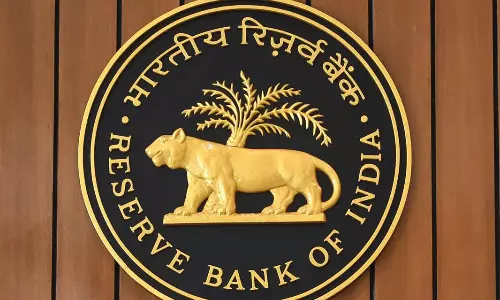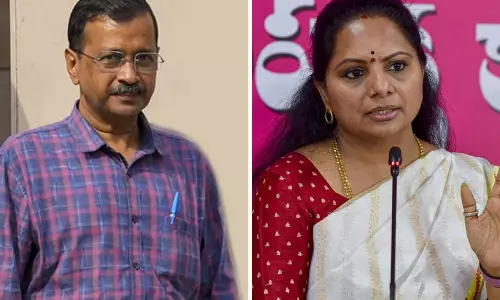
Anti-terror law for state terrorism
text_fieldsThe much controversial Gujarat anti-terror Bill has been passed by the NDA government at the Centre and sent to the President Pranab Mukherjee for his consent likely to pave way for stringent anti-terror laws in the state.
The Gujarat Control of Terrorism and Organised Crime (GCTOC) Bill, 2015, was first introduced in 2003 by Modi, who was then the Chief Minister of the state and has been under fire since then. The Bill was put forward by the Home Ministry citing the ‘safety and security of the residents of Gujarat, which shares its border with Pakistan’. It has only minor changes in the controversial Gujarat Control of Organised Crime (GUJCOC) Bill including adding the word ‘terrorism’ in its name and retaining much of the controversial provisions. GCTOC which has been sent to the Centre for approval since 2001 was rejected four times before, due to strong public opposition and legal suggestions. Former Presidents late APJ Abdul Kalam and Pratibha Patil had rejected the Bill. The Ministry of Information and Technology (IT) in last July had opposed certain provisions in the Bill. If GCTOC becomes law in Gujarat, other states are likely to follow as well and would intensify the anti-public moves already rampant in Gujarat. The democrats should comprehend the implications as well as the intentions behind giving more power to the Gujarat police and the government officials notorious for torturing innocents by framing them in fake cases and executing them by staging fake encounters. Even the smallest provisions have drastic consequences. The Bill was put forward citing the need to curb terrorism and organised crimes. It’s not the absence of laws but the failure in efficiently implementing them that leads to an increase in terrorist activities and other crimes. Several incidents of innocents trapped in jails and criminals roaming fearlessly including in Gujarat are evidences of this fact. Black laws from ‘POTA’ to ‘UAPA’ have proved earlier that situations where any such law would be easily recognized if an activity is labeled as terrorism, are deliberately created. The anti-terror law is capable of penalizing those who critisise the government policies or raise objections or controversies over the Centre’s moves.
Opposing the moves posing a threat to the nature and environment and resisting the land acquisitions by the corporate companies would all become punishable under this Act. Even staging protests against the imposition of genetic crops and harassments at work place by the ‘Pembillai Orumai ‘ in Kerala can be counted as terrorism according to the law. All such moves could bring a five year imprisonment and a five lakh fine. There are provisions in the law for trapping anyone citing terrorist activity and including them in the FIR on the basis of mere police reports without any trials. The trials if deliberately delayed can extend the agony of the innocents already in jails. The Bill provides for admissibility of evidences collected through the interception of mobile calls or through confessions of an accused made before an investigating officer, in the court of law. The time limit for filing the charge sheet has been extended from 90 days to 180 days. Even the private letters and emails of individuals can be intercepted if the law comes into effect. In-camera trials to be adopted under the law would ensure that severe injustice in the court procedures remain hidden from the outside world. The provisions for bail would also be literally removed with the courts permitted to grant bail only if the accused are proved not guilty. In short any resistance against the government would be treated ‘appropriately’. Unlike ‘TADA’ and ‘POTA’, the anti-terror law classifies ordinary wrongdoings as terrorism. Another aspect is the high level misuse of the law. Out of the 76, 000 people arrested in ten years as per TADA, 75, 136 were proved not guilty only after years of imprisonment. About 25 per cent of the people arrested were penalized even without a charge sheet. The authorities might use the law for shackling the freedom of expression. Favouritism of the government is yet another factor. According to POTA, 287 cases were registered, all against Muslims except one. About 22 fake encounter killings were known to be reported. It’s the final opportunity for the patriots to intervene in the matter and save democracy. If such black laws continue to be passed, India would cease to remain an independent democratic country in future.























